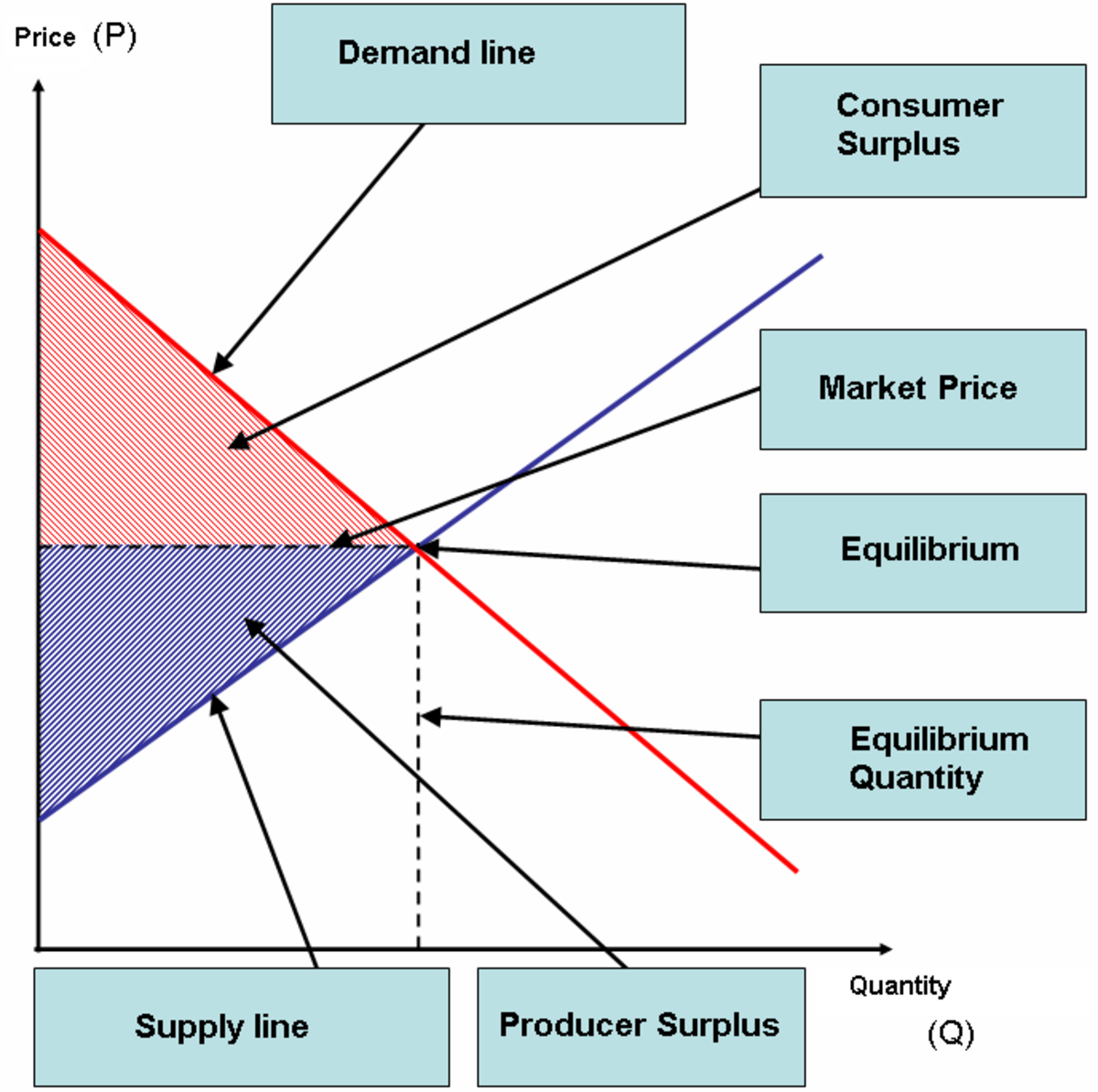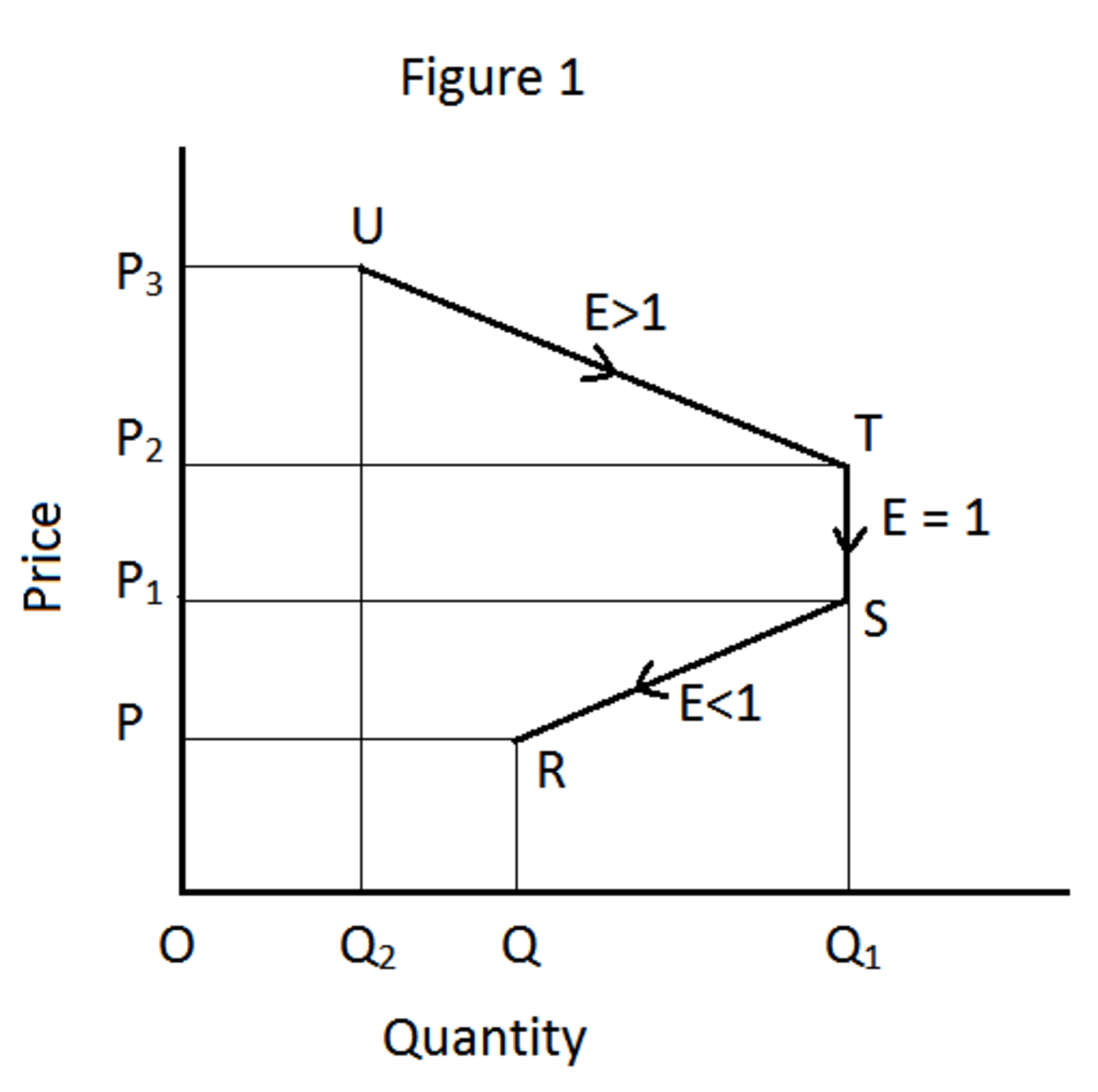Income Disparity & Wealth Disparity
Income Inequality
Income disparity is the difference in income earned by different genders, age groups and race. Why is this important to us? Because equity or the lack there of has implications ranging from crime rate to immigration. Everyday we hear instances of the female workforce being underpaid and undervalued even though they hold the same positions as their male counterparts. Income inequality is not something that just sprung up overnight. Its been happening for decades. It's just in the media spotlight recently because of the global financial crisis. According to the Economist magazine, prior to the 2000s, everyone was still able to make ends meet because of "asset bubbles and cheap credit". Now that the bubble has burst, discrepancies in income levels and treatment between different groups of people start to emerge. The bailouts large companies and banks received shows the unfairness of the system where the upper echelons had their debt "disappeared" while the regular folks lost their life savings, homes and jobs.
It has taken us such a long time to realize this issue because the living standards had masked the concentration of incomes. For example, the income of the top 1% has doubled since 1980 and the top 0.01% has quadrupled in the same time period. The incomes for the remainder of the populace barely grew. A simple analogy is this: take a person who is standing still while the rest of the world is moving forward. In relative terms the person who is standing still is falling behind the rest of the world. As the standard of living and the consequent cost of the living continues to rise with income not keeping pace, disparities will start to build.
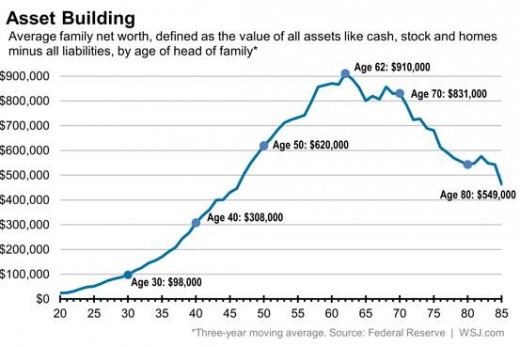
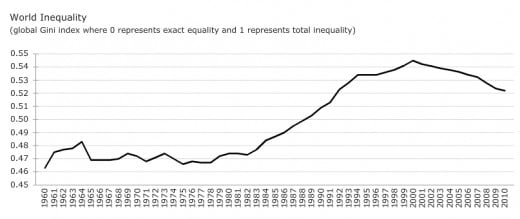
Wealth Inequality
Wealth is measured but subtracting all the assets a person owns with all the liabilities a person owes. As a result it is a broader indicator of economic inequality than income because it takes into consideration all the assets and debts. A person could be making less than their counterpart who's holding the same position but in overall wealth they might be better off due to a lower debt load. The distribution of wealth is important to the health and longevity of such wealth. The rich therefore has their wealth come from a variety, and often more lucrative, sources. Whereas the middle-class has most their wealth tied in real estate. We all know what happens when we put all our eggs in one basket.
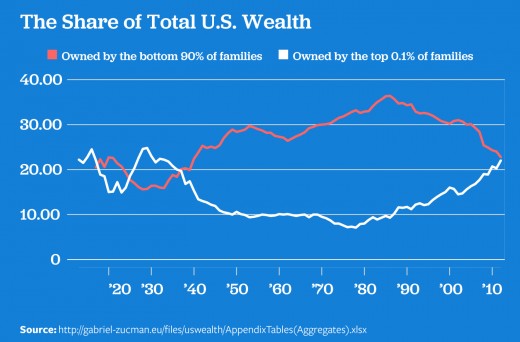
Its crazy to think how the top 0.1% of the population is holding as much wealth as the bottom 90% of the populace. It's a cyclical cycle. Because the wealthy has more wealth, they can diversify while the bottom has to work within a constraint, they cannot diversify as much.
What is ironic about wealth disparity is that global wealth has grown by more than 7% for the third consecutive year in 2014 according to Allianz's Global Wealth Report 2015.
Standard of Living
Although globally the standard of living has risen across the board since the 1900s, so has the cost. Each city, and each country has their own challenges and benefits relating to why their standard of living is higher or lower than other comparative cities. For example, Singapore is 16% more expensive to reside than New York while DC is 14% cheaper than New York. Regardless of the factors that cause this rise or fall in relative terms, income levels has to keep pace lest they experience an exodus of young professionals. Vancouver, British Columbia is experiencing such state of affairs at the moment. Income levels has more or less remained stagnant while the cost of living, especially housing has risen exponentially. Many young families and professionals are deciding to pack up and leave to find other locales where they are able to support their families and start building wealth. For those who stay face the challenges of accruing wealth because all their incomes are eaten up by daily expenditures.
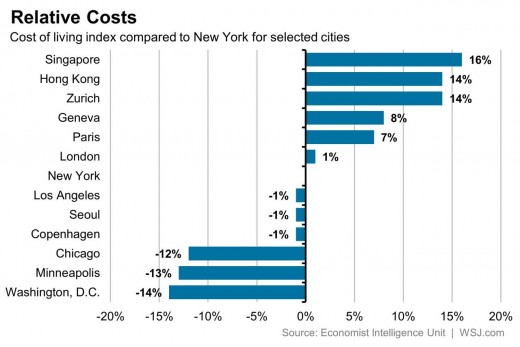
The problem occurs when the cost of everything increases through inflation and income doesn't grow at the same pace for the middle class. This kind of situation is what causes the income gap in many developing countries. At current, of the worlds' total income, almost half (42%) belongs to the top 10% of the population while only a meager 1% goes to the poorest 10% of the world's population. As you see, there's a large distribution gap in how only 10% of the world's population has control over 42% of the world's wealth while the remaining 90% of the population the remnants of 58%.
Good News - Income Inequality Solutions
During the 2011 World Economic Forum in Davos, Switzerland. There was an adviser to the International Montery Fund (IMF), Zhu Min, told other delegates that “the increase in inequality is the most serious challenge for the world. .. . I don’t think the world is paying enough attention.”
In recent years, developed countries are proactively taking steps to mitigate the income gap. One such step is to institute a luxury tax on certain high end products, or increasing the corporation tax rate. Again this leads back to my previous article about corruption. If the above example taxes are collected and redistributed, it'll alleviate some of the pressures off the middle class. However, more often than not, the tax collected to go towards funding other social programs, and infrastructure upgrades. In this case, it'll certainly help but only in a minuet sense because all that just adds to increasing the cost of living without any real increase to the real incomes of people. It's a very difficult challenge to tackle. Tax breaks for the working class, tax hikes for the wealthy are a few initial solutions, but the execution of how to gain enough tax revenue for government expenditures and the distribution of the funds will be key to the success and/or failure of any progress.
Income Inequality in the United States
© 2016 Alan Ling






